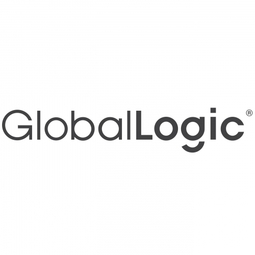Customer Company Size
Large Corporate
Country
- United Kingdom
Product
- Product Accelerator Service
Tech Stack
- Human-Centered Design
- Prototyping
- Role Play
Implementation Scale
- Enterprise-wide Deployment
Impact Metrics
- Brand Awareness
- Customer Satisfaction
Technology Category
- Infrastructure as a Service (IaaS)
Applicable Industries
- Consumer Goods
- Retail
Applicable Functions
- Business Operation
- Sales & Marketing
Use Cases
- Retail Store Automation
Services
- Software Design & Engineering Services
- System Integration
About The Customer
Costa Coffee is a well-known multinational coffee brand owned by The Coca Cola Company, with over 4000 store locations worldwide. The brand is recognized for its high-quality coffee and has a strong presence in the global coffee market. Costa Coffee aims to provide an exceptional coffee experience to its customers, focusing on quality and customer satisfaction. The company is constantly looking for innovative ways to enhance its service offerings and adapt to changing consumer needs. With a significant number of stores located in urban areas, Costa Coffee is keen on tapping into the urban commuter market, which requires a quick and efficient coffee experience without compromising on quality or customer service.
The Challenge
Costa Coffee faced a challenge in adapting their traditional store formats to meet the needs of urban commuters who require a quick and efficient coffee experience. The existing store formats were not conducive to the fast-paced lifestyle of urban commuters, making it difficult for Costa Coffee to capture this market segment. The company needed to create a new store format that could deliver high-quality coffee quickly while maintaining a human touch, ensuring that the experience did not feel rushed or impersonal. This required a strategic approach to design and implementation, focusing on both operational efficiency and customer perception of speed.
The Solution
To address the challenge, Costa Coffee partnered with Method, GlobalLogic's strategic design arm, to develop a human-centered approach for their new mini-format store. The solution involved using a product accelerator service to rapidly develop and prototype concepts that would make the new store format stand out in the urban commuter market. The focus was on creating a unique Costa experience that felt fast yet human. The process included designing an experience that emphasized the perception of speed rather than just operational speed. This was achieved through a lean, sprint-based approach that involved testing ideas and solutions with target customers using role play, observation, and in-depth interviews. Environmental 'wireframe' mock-ups of the new store proposition were created to test hypotheses in full context, considering both physical and digital touchpoints. The research highlighted the importance of human interaction, such as handing customers their coffee with a smile and eye contact, to enhance the overall customer experience.
Operational Impact

Case Study missing?
Start adding your own!
Register with your work email and create a new case study profile for your business.
Related Case Studies.
.png)
Case Study
Improving Vending Machine Profitability with the Internet of Things (IoT)
The vending industry is undergoing a sea change, taking advantage of new technologies to go beyond just delivering snacks to creating a new retail location. Intelligent vending machines can be found in many public locations as well as company facilities, selling different types of goods and services, including even computer accessories, gold bars, tickets, and office supplies. With increasing sophistication, they may also provide time- and location-based data pertaining to sales, inventory, and customer preferences. But at the end of the day, vending machine operators know greater profitability is driven by higher sales and lower operating costs.

Case Study
Improving Production Line Efficiency with Ethernet Micro RTU Controller
Moxa was asked to provide a connectivity solution for one of the world's leading cosmetics companies. This multinational corporation, with retail presence in 130 countries, 23 global braches, and over 66,000 employees, sought to improve the efficiency of their production process by migrating from manual monitoring to an automatic productivity monitoring system. The production line was being monitored by ABB Real-TPI, a factory information system that offers data collection and analysis to improve plant efficiency. Due to software limitations, the customer needed an OPC server and a corresponding I/O solution to collect data from additional sensor devices for the Real-TPI system. The goal is to enable the factory information system to more thoroughly collect data from every corner of the production line. This will improve its ability to measure Overall Equipment Effectiveness (OEE) and translate into increased production efficiencies. System Requirements • Instant status updates while still consuming minimal bandwidth to relieve strain on limited factory networks • Interoperable with ABB Real-TPI • Small form factor appropriate for deployment where space is scarce • Remote software management and configuration to simplify operations

Case Study
Digital Retail Security Solutions
Sennco wanted to help its retail customers increase sales and profits by developing an innovative alarm system as opposed to conventional connected alarms that are permanently tethered to display products. These traditional security systems were cumbersome and intrusive to the customer shopping experience. Additionally, they provided no useful data or analytics.

Case Study
How Sirqul’s IoT Platform is Crafting Carrefour’s New In-Store Experiences
Carrefour Taiwan’s goal is to be completely digital by end of 2018. Out-dated manual methods for analysis and assumptions limited Carrefour’s ability to change the customer experience and were void of real-time decision-making capabilities. Rather than relying solely on sales data, assumptions, and disparate systems, Carrefour Taiwan’s CEO led an initiative to find a connected IoT solution that could give the team the ability to make real-time changes and more informed decisions. Prior to implementing, Carrefour struggled to address their conversion rates and did not have the proper insights into the customer decision-making process nor how to make an immediate impact without losing customer confidence.









